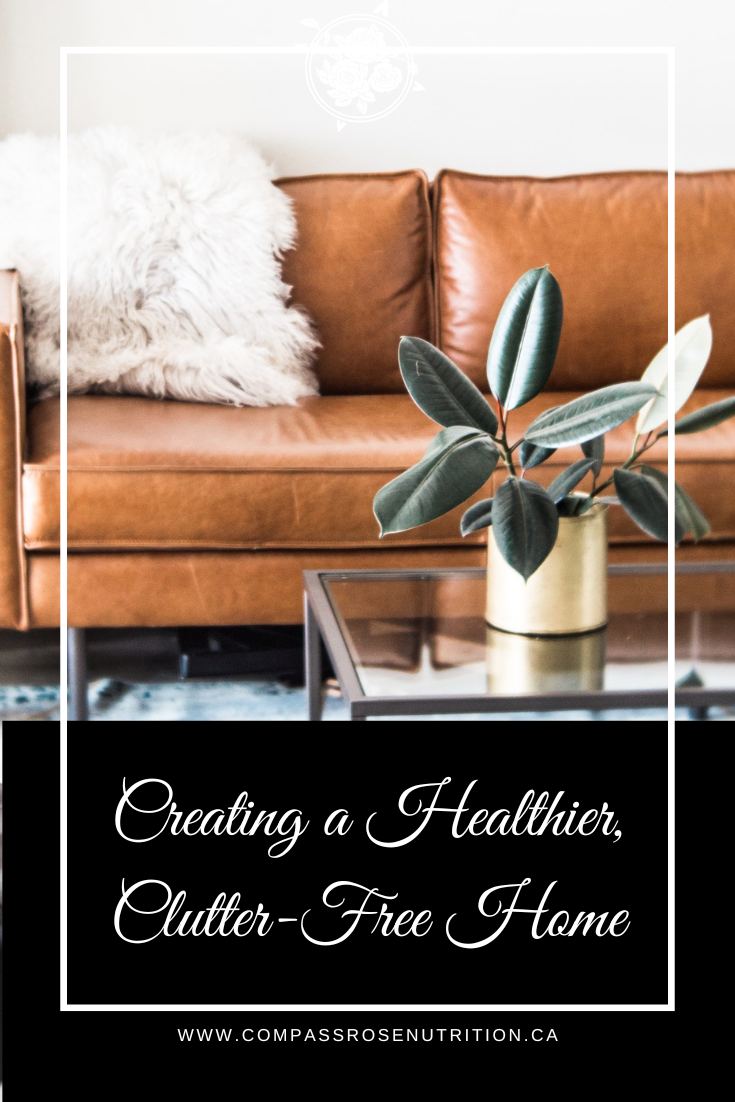When we examine how clutter impacts us mentally, we see how a mess around us can cloud our thoughts, zap our productivity, and even dent our mood and self-esteem. Decluttering isn't just about keeping things neat—it actually feels good- like a form of therapy. It can offer a real boost to our sense of control, clarity, and peace of mind. Similarly, establishing a home that prioritizes both health and sustainability is vital for our well-being. Our homes serve as personal havens where our health should be nurtured and protected.
Understanding the intricate relationship between clutter and our mental well-being highlights why it's crucial to develop strategies to not just deal with but truly master the spaces we live in. Poor air quality, toxic materials, and inefficient energy use can harm the planet and adversely affect our health. By making mindful choices, you can create a living space that supports your health and the environment.
Tips for Tackling Clutter and Creating a Healthier Home
1. Start Small, Stay Steady:
Kick things off with just a drawer, a shelf, or a corner. Consistency is your goal here. Setting aside even just 10 minutes a day for decluttering can spark significant shifts over time.
2. Embrace the One-In, One-Out Philosophy:
To keep future clutter at bay, for every new thing you bring home, find something old to part with. This habit fosters a mindful approach to only keeping what we need and cherish.
3. Try the Four-Box Technique:
When you're ready to tackle a clutter hotspot, arm yourself with four boxes labeled "Keep," "Donate," "Recycle," and "Trash." It's a straightforward way to sort through things and make decisions easier.
4. Don't Forget About Digital Mess:
Clutter isn't just about physical stuff. Unsorted files, packed inboxes, and forgotten apps can stress us out, too. Make some time to tidy up your digital life as well.
5. Purify Your Air:
Plants like spider plants, peace lilies, and Boston ferns are aesthetically pleasing and excellent at purifying indoor air. Instead of chemical sprays, opt for essential oils or open windows to circulate fresh air.
6. Choose Eco-Friendly Cleaning Products:
Many household cleaners contain harmful chemicals. Look for eco-friendly, non-toxic options, or make your own using ingredients like vinegar, baking soda, and lemon. Microfiber cloths are more effective and can be washed and reused, reducing waste.
7. Reduce Energy Consumption:
LED bulbs last longer and consume less energy than traditional bulbs. Appliances can draw power even when not in use. Unplugging them can save energy and reduce your electric bill.
8. Minimize Water Waste:
A dripping tap can waste a surprising amount of water over time. Find and fix any leaks you may have present in your home. Consider low-flow showerheads and faucets to reduce water use without sacrificing performance.
9. Opt for Sustainable Materials:
Choose furniture and decor made from sustainable materials like bamboo, recycled wood, or responsibly sourced textiles. Consider cork or bamboo flooring, which are sustainable and have the added benefit of being naturally antimicrobial.
10. Mindful Waste Management:
Composting can significantly reduce kitchen waste and provide excellent natural fertilizer for your garden. Be diligent about separating your waste and understand local recycling guidelines.
11. Create a Non-Toxic Bedroom:
Opt for organic cotton or bamboo sheets free from harmful chemicals. Consider a mattress made from natural materials like organic cotton.
12. Cultivate a Healthy Kitchen:
Avoid plastic containers and opt for glass or stainless steel. Choose ceramic, cast iron, or stainless steel instead of non-stick cookware that can release harmful chemicals when heated.
13. Embrace Natural Light:
Use sheer curtains or strategically placed mirrors to enhance natural light, reducing the need for artificial lighting and boosting your mood.
14. Create a Green Outdoor Space:
Whether you have a small balcony or a full yard, take some time to tidy it up and make a spot you enjoy to spend time. Whether a few herbs on a windowsill or a full vegetable garden, growing your food can be a rewarding way to connect with nature. Opt for natural methods to control pests in your garden, like companion planting or natural insect repellents.
The Benefits of a Tidy, Healthy Home
A tidy space does wonders for our minds. It sharpens our focus, calms stress and anxiety, and might even help us sleep better. It makes everyday tasks more enjoyable, sparking creativity by clearing out mental clutter. In a decluttered environment, clarity and creativity flourish, paving the way for focused thought, creativity, and productivity to thrive. An orderly space acts like a breath of fresh air for your mental state, melting away stress and anxiety and instilling a sense of calm and control. This tranquility extends into the night, where a tidy bedroom becomes a sanctuary for deeper, more restorative sleep, essential for maintaining good health.
Tackling clutter and making mindful choices for a healthier home is an act of self-care, a way to invest in your mental and emotional well-being. Creating a clutter-free zone means crafting a space that's organized and truly reflects a sense of peace and beauty. Adopting these simple greening tips can make a significant difference in creating a healthier, more sustainable home. Start with small changes and gradually incorporate more as you become comfortable. Remember, a healthy home benefits you and your family and contributes to our planet's well-being.
Discover your personal path to perfect health. Take this 2 minute quiz to discover the missing piece you need to focus on to stop feeling meh, and start feeling amazing. Click here to get started —> 4 Pillars of Health Quiz






